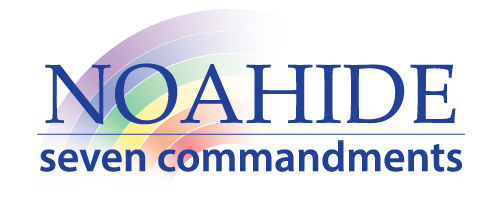2022
Rabbi Dr Zvi Aviner
Noahidesevencommandments.com
ADULTERY-3/
Sin Is to Transgress Our KING’s Command
-
IDOLATRY in Eden
Adam continues to ‘grow’ in Eden.
An advice given by his parent would not be effective enough
to keep him away from eating the Forbidden Fruit.
He needs a greater authority, like a school teacher
or a principle, or a king to affect his behavior.
Therefore, the Torah says:
“And YHVH ELoKiM Commanded on the Adam, saying,
of every tree of the Garden you may freely eat,
but of the Tree of Knowledge Good and Evil you shall not eat of it,
for on the Day that you eat of it you shall DIE.” (Genesis 2:16-1
In addition to giving an advice, YHVH ELKM
“commanded” on him not to eat the Fruit.
Thus, we have two notions of Sin:
Sin is to transgress our Father in Heavens’ advice,
Sin is to disobey our King of the Universe’ command.
If Adam has eaten from the Fruit, he has
transgressed his Father in Heavens’ advice,
rebelled against his King of the Universe’ command.
Transgressing G-d’s Command, the King’s Command,
is the essence of IDOLATRY.
Hence, the Rabbis said, Adam was obliged to observe IDOLATRY in Eden.
Again, surely Adam would not err with foolish stone and wood idols in Eden,
but he could – and finally did – act against his King’s command by eating the fruit.
-
Giving Adam Six Commandments
But the words “commanded on the Adam”- the Rabbis said- have a far wider implication. In addition to IDOLATRY, YHVH ELKM gave Adam here Six Commandments which are:
I: IDOLATRY
II: ADULTERY
III: BLOODSHED
IV: THEFT
V: CIVIL ORDER AND JUSTICE
VI: BLASPHEMY
At this point in the story, while Adam lived in Eden alone,
all he could transgress was IDOLATRY,
by disobeying G-d’s Command and eating the Forbidden Fruit.
He could not violate ADULTERY when there was no woman,
He could not violate BLOODSHED in a place that had no death,
He could not violate THEFT in a place where there was no private ownership,
He could not violate JUSTICE where there was no society,
He would not commit BLASPHEMY living so close to YHVH ELKM
Thus, besides IDOLATRY (and ADULTERY when the woman is formed)
the other four Commandments were given to him as potential Laws
in case he losses Eden and lives on Earth.
Adam resembles here a boy attending school,
where his teachers prepare him to life outside school, after graduation.
The school prepares him to be a good, functionary citizen.
Although the boy can’t fully comprehend the laws of society outside school,
he listens and memorizes them as his teachers demand.
- Natural Moral Code
The scholars are puzzled by the fact that all human societies, all over the Glob,
share a common sense of decency and fairness, with small cultural differences.
Thus, all human societies forbid murder, theft, injustice and so on.
Buddhism for instance counts the Six Commandments of Adam as a
basic ingredient of their teaching.
The scholars, especially in the 18th century, have referred to this as
our Natural Moral Code shared by all Mankind. The origin of that Natural Code
remains mysterious, explained by the Evolution and by “common needs” and the benefit
of the group/
But the Torah tells us that this apparent “Natural Moral Code” is rooted in Adam’s life
In Eden. G-d gave them to Adam, in case he would live on Earth. Having been given in Eden is tantamount of engraving the Commandments in our psyche. We are, indeed, born on Earth with those Six Commandments deeply engraved in us.
The result is that NO ONE MAY CLAIM THAT HE DID NOT KNOW THAT MURDER, OR THEFT, OR ADULTERY IS FORBIDDEN. You don’t have to go to school to learn those Commandments. They are part of our psyche, of our mind and heart.
